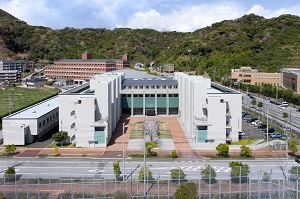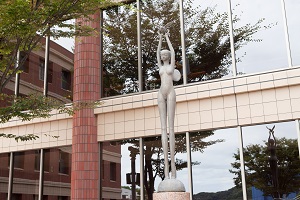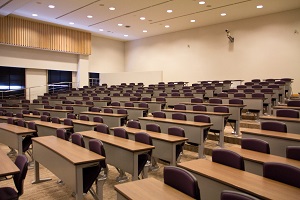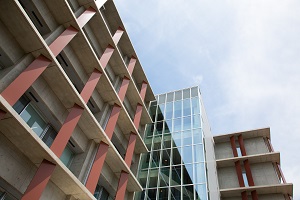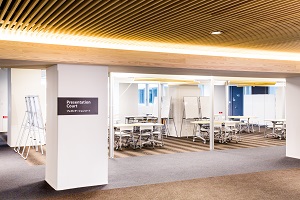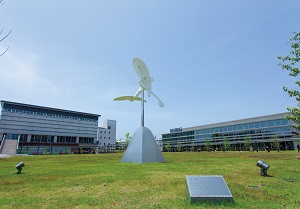本文
Areas of the Master's Program
Department of Nursing
Areas (Clinical Nurse Specialist Course)
| Area | Description |
|---|---|
| Cancer Nursing | Students develop the ability to provide advanced nursing care to cancer patients and their families during the entire process from cancer prevention to terminal care, as well as care for bereaved families. Students also learn ways to devise assistance systems unique to cancer nursing and acquire the ability to make changes and innovations in cancer nursing practice. |
| Chronic Care Nursing | Students develop the ability to provide an advanced level of nursing that helps chronically ill people and their families to expand their lives by themselves and to live their own lifestyles. Students also acquire the ability to make changes and innovations in chronic care nursing, aiming to systematize assistance in a manner unique to chronic care nursing. |
| Critical Care Nursing | Students learn ways to develop sophisticated nursing methods by working with medical teams for patients in critical condition and their families. Students also learn how to develop their own assistance methods in critical care nursing and acquire the ability to induce changes in nursing practices. |
| Child Health Nursing | Students learn ways to understand infants and children at various health levels and their families. The students also study assistance methods in use that take into consideration the volition of children and their families, and thereby acquire the ability to make changes in practices. Students also learn how to plan and promote research on child health nursing. |
| Psychiatric Mental Health Nursing | By broadly learning psychiatric mental health nursing theory, research, and thought, students acquire a high-level professional ability in psychiatric nursing to explore nursing support systems for people who are suffering from psychological ailment, and their families, to live their own lives. |
| Family Health Nursing | Students learn theory in the field of family health nursing, which views families as its target of nursing, thereby mastering advanced methods of intervention in nursing to promote family health. Students also learn ways to function as pioneers in this discipline and promote research activities on family health nursing. |
| Home Care Nursing | Students study theory, practice, and research in the field of home nursing from a broad perspective, to explore nursing assistance systems to help home care recipients and their families live independent lives, and to improve home health care and home nursing. Students acquire the ability to innovate in practices in this field. |
| Gerontological Nursing | Students broadly study the health issues of older people and their families from theoretical, practical, and research points of view. The aim is not only to acquire the ability to address the problems that are right in front of us, but also to gain practical competence in nursing to provide support at the end of elderly people’s lives. |
Curriculum (Japanese)
Areas (Research Course)
| Area | Description |
|---|---|
| Co-creation Nursing |
In the Co-creative Nursing Science Filed Study Course, students will explore the question of what nursing is from a research persipective beyond their area of specialization. The course aims to enable students to explore the essence of nursing using interdisciplinary theories, concepts, and research methods through interdisciplinaru and international connections and collabotation. Students will acquire the ability to disseminate the results of their research both domestically and internationally in order to translate the results back into practice and theory. |
| Adult Health Nursing | Adult Health Nursing explires nursing care for people at all levels of health, from the preventive to the terminal stage, based on the characteristics and developmental stages of adulthood. Students will acquire the ability to conduct research and edcuation that will contribute to the improvement of nursing care and the systematization and development of nursing science, by looking at issues in nursing practice from a research perspective based on the relationship between theory and practice, such as the developmet of assistance methods that enable people with chronic illnesses such as canber, heart disease, and diabetes to live their own lives. |
| Child Health Nursing | In the Child Health Nursing, students will learn the theories, concepts and research methosds that from the basis of pediatric nursing, understand children and their families at various levels of health and development, and explore what the best nursing care for children is from a research perspective. Students will acquire the ability to take a multifaceted and multifaced view of the circumstances of children and their families and the communities in which they live, to plan and promote research rooted in pediatric nursing practice that advocates for the rights of children and their families and explores the best nursing care for children, and to disseminate research findings to nursing education and nursing practice. |
| Family Healt Nursing | Studens will learn the principles, theories, and methods of family nursing, which considers the familty as a unit, including those with health problems, as the object of nursing care, and supports them in a supportive, prevetive, and therapeutic manner so that they can enhance their own self-care functions and independently solve problems. |
| Community Health Nursing | Students learn practice, theory, and research related to community nursing from a wide range of perspectives, and acquire the ability to develop advanced nursing care for subjects at various levels of health and their families. Students are then trained to be practitioners and researchers who have developed the ability to examine changes aimed at enhancing community nursing and reflect them in practice. |
| Nursing Management | We explore the components necessary to build a system for providing high-quality health care and welfare services by taking a multifaceted, multifaceted view of the indivisual- family-community. We aim to develop the ability to exercise leadership in a creative and flexible manner that can respond to diversifying needs and values in the rapidly changing health care system, human resource management system, and quality and evaluation system of medical and nursing care. |
| Disaster and International Nursing | The educational goal of this area is to " Develop human resources who can contribute to the practice of disaster/ international nursing and the developmentg of disaster/ international nursing from an interdisciplinary and global perspective, and who can educate others in disaster/international nursing, with the aim of realizing a society where people can "live ehealth lives as they should " even in disaster situations, based on the basic principle of human security. |
| Maternity Nursing | The Maternity Nursing research focuses on women during pregnancy, childbirth, and child-rearing, children and their families, as well as women's sexual and reproductive health throughout their lives, and explores research and practice aimed at improving the quality of care. |
Curriculum (Japanese)
Area ( Practical Leader Course)
| Area | Description |
|---|---|
| Clinical Nurse Practitioner | This research course is designed for nurses with strong practical skills who can study while continuing their work. |
| Community Health Science | This course is designed for public health nurses, school nurses, home health nurses, family nurses, and industrial nurses who are working in the areas of community nursing, school health, home hursing, family nursing, and industrial nursing, and allows practitioners to learn while continuing their work. |
Curriculum (Japanese)

